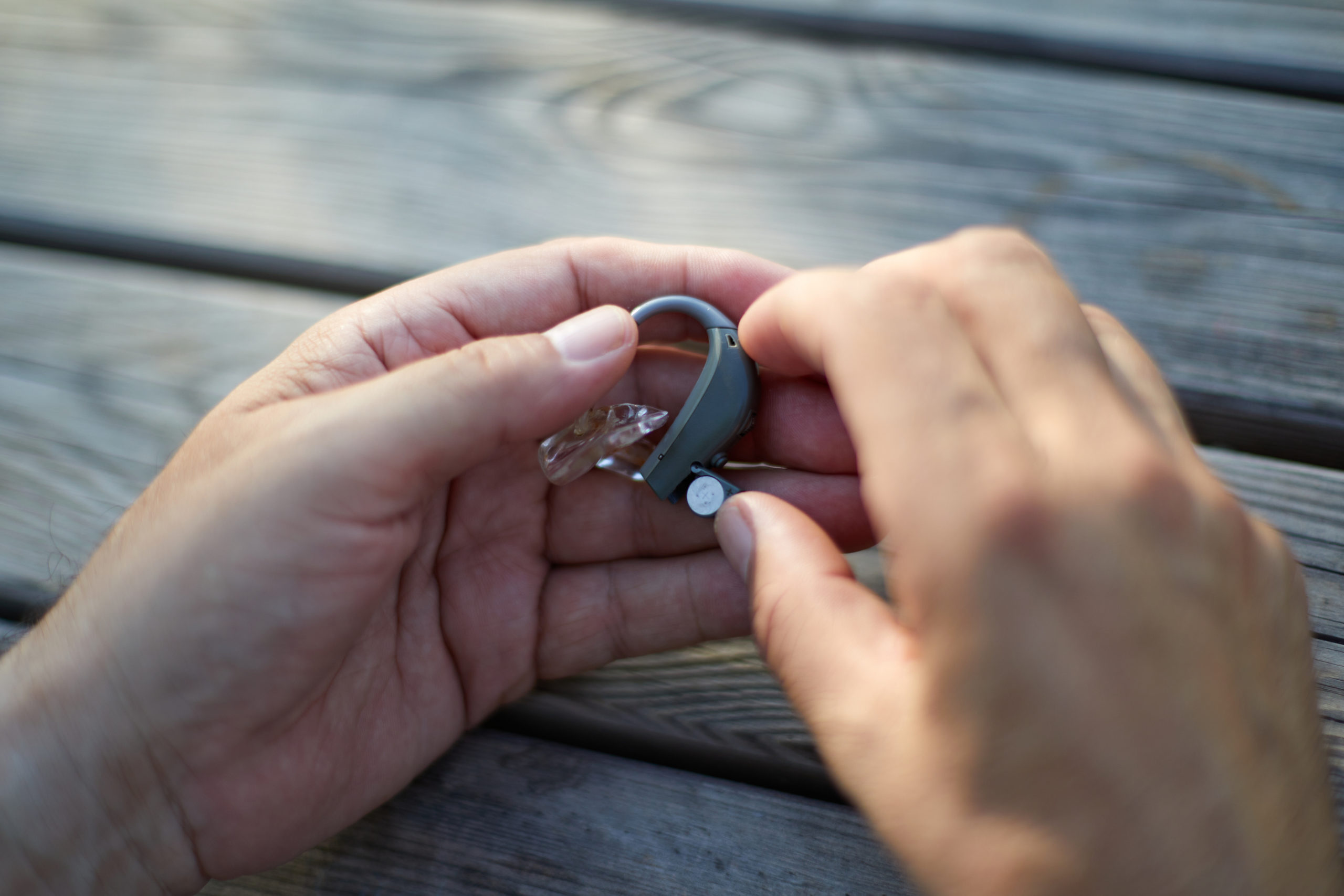All hearing aids are powered by batteries, whether it’s a new battery that’s inserted into your hearing aid every time it runs out, or a rechargeable hearing aid battery that just needs to be placed on charge every time battery power is low.
If you find yourself changing batteries a lot, or the battery life of your hearing aid isn’t lasting as long as it should then you may have an issue. Below, we have gone into some of the reasons this may occur and how you can avoid problems with your hearing aid batteries in the future.
If you’re still struggling with the battery life of your hearing aids, then book an appointment at one of our Hearing Care Centres across Sussex. We can help diagnose any issues and come up with a solution to help ensure your hearing aids are performing optimally.
What factors impact how long hearing aid batteries last?
Moisture
Moisture is one of the biggest factors that impacts the lifespan of hearing aid batteries. If moisture gets into the hearing aid batteries, it can cause corrosion from the condensation.
There is a well known myth that storing hearing aid batteries in the fridge will make them last longer, however this is totally untrue and will cause moisture buildup. This will impact the battery life and make the hearing aid batteries drain faster than they should.
Advanced functions
Most digital hearing aids now come with a range of functions and smart features which make day-to-day life that much easier. However, using these extra features on your hearing device will drain the battery quicker.
When you’re not using these smart features, it’s worth turning them off to ensure your hearing aid batteries aren’t draining unnecessarily.
Extreme weather
Severe altitude changes and extreme weather changes can cause your hearing aid batteries to drain quicker. For example when on a plane or if you’re climbing a mountain, ensure you bring spare batteries with you in case you lose battery power.
Tiny water droplets can form when the metal casing of the battery is taken from a very cold environment and suddenly exposed to a very warm environment. This is true of the reverse as well.
As long as the batteries are stored in a cool dry place they will keep well. A drawer or cupboard is a good environment for ensuring your hearing aid battery lasts.
What hearing aid battery options are available now?
Rechargeable hearing aids
The latest hearing aids are now available with rechargeable batteries and some manufacturers also supply a custom in the ear option which is rechargeable. Both styles use Lithium-ion batteries which are very safe and reliable and can give up to 30 hours of continuous use on a single charge.
Environmentally friendly options
Modern lithium-ion batteries are much more environmentally friendly since no batteries contain any trace of mercury like they used to. We’re proud to also operate a recycling facility – hearing aid users can return all used hearing aid batteries to us so they can be safely recycled and not go into landfills.
Remember to save your used hearing aid batteries for recycling and lower the 20,000 tons that annually go into landfills.
Zinc hearing aid batteries
The most common batteries are called zinc-air batteries and are very reliable. They are commonly called dry charged batteries, which means there will be no leakage from the batteries and the charge is only activated through a chemical reaction when the tab is removed from the metal battery cell. A tiny pinprick hole allows oxygen from the atmosphere to react with the chemical composition inside the battery and that chemical reaction, called oxidation, releases an electrical charge which will power your hearing aid.
It is advisable to remove the tab from the battery and leave it for a minute before inserting it into the hearing aid to ensure the battery is optimally charged.
How to improve the lifespan of your hearing aid batteries
- Do not leave batteries in direct sunlight and do not leave them in the car overnight as they can become extremely cold in icy conditions and heat up too much during the day in sunnier climes.
- Do not store in a fridge or in an area susceptible to extreme changes in temperature or frosts.
- Do not store near water or fluids as moisture can cause the metal casing of the battery to rust or corrode.
- Keep out of reach of children and pets as batteries can be harmful if swallowed.
- Never dispose of batteries in a fire due to risk of explosion.
How South East Hearing Care Centres can help
We supply all types of batteries from the largest size 675 through to the smallest size 10. You can pop in and purchase batteries or you can order on the phone and use our postal service. This has been an enormous help through the pandemic and useful for our less mobile customers. Give us a call on 01403 218 863 to discuss your hearing aid battery options.
